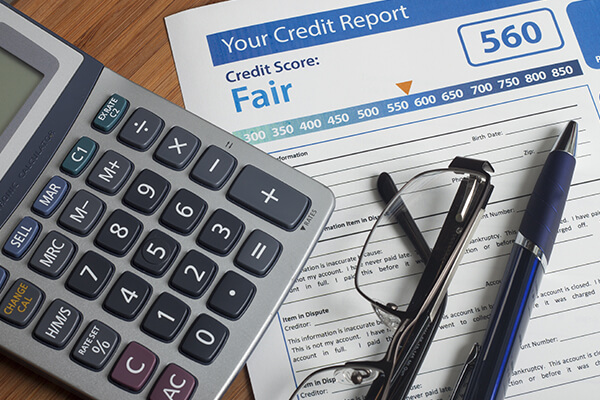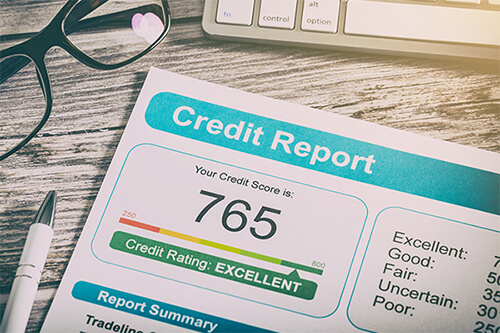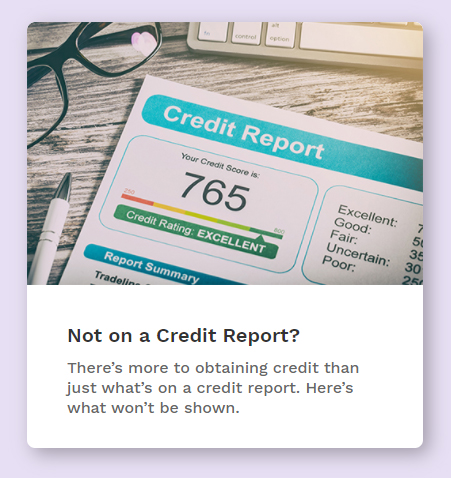How to Fix Bad Credit in Canada
By Debra Pangestu
If you are wondering how to fix your credit score in Canada or resolve some bad credit issues on your credit report, we’ll show you how you can fix four common problems. Depending on your situation and how much damage you’ve done to your credit score, the answers vary, but the bottom line here is that we’ll share with you information on what affects credit score in Canada for free (information that some credit repair companies try to charge a lot of money for). We begin with lighter credit problem issues that are very common and move into bigger challenges.
Jump to a section in this series:
How Do Missed Credit Card Payments Affect My Credit Score?
Many people get concerned because their credit report shows they’ve missed one or two credit card payments. While this may impact your credit score a bit, in the big picture, it usually isn’t a big deal. Mistakes happen occasionally, and sometimes things get missed or are even reported incorrectly on credit reports.
Having a Good Credit History Will Lighten the Impact of Late Payments
As long as you have a good credit history that spans many years, one or two late payments will be like a small scratch on your car door: it’s unsightly to look at, but in the grand scheme of things, the scratch doesn’t change much.
But if you drive around with many scratches and dents on your car, people may get the impression that you are careless and may begin to ask questions. The same is true with your credit report. The more late payments that show up, the better the chances are that your lender is going to ask you what happened, and the more likely it is that your credit score will be impacted.
Request a Free Credit Report Every Year to Keep Your Credit in Check
If you diligently pay your bills on time but are wondering if something slipped through the cracks, you can request a free credit report once every year to give your credit a checkup. This is also a good idea to ensure that your credit report is accurate.
How Does Credit Card Debt Affect My Credit Score?
If you have had credit cards for several years and you always pay your bills on time, yet you have a low credit score, it may be because of the amount of credit card debt you are carrying. If any credit card balances are routinely over 75% of your credit limit, this is a red flag to the credit scoring system. Carrying such a high balance on your credit card will significantly lower your credit score because, statistically, it’s a sign that you may be under increasing financial pressure, and you may be quickly running out of financial resources to bail yourself out of a jam. All this means that you’re likely a higher risk, and banks are in the business of managing and reducing their risk, not increasing it.
Keeping Your Credit Card Balance at 50% or Lower Is Best
The way to fix this situation is to keep your balances below 75% of your credit card balance. Staying below 50% of your limits will help your score even more, and of course, the best thing to work towards is completely paying off all your credit cards every month and trying not to carry a balance.
If you are struggling with your debt and need some expert help, give us a call and make an appointment to speak with one of our Credit and Debt Counsellors. They’re a wealth of knowledge and can provide helpful advice and guidance.
How Do Unpaid Collections Affect My Credit Score?
Many peoples’ credit scores take a hit for unpaid collections reporting in the public records section of their credit reports. These collection items include unpaid parking tickets, speeding tickets, traffic fines, cell phone, and utility bills. The good news is that as soon as you pay off debts like this, you can ask the creditor to remove their collection notice from your credit report. And many of them will do just that.
If one or two collection items were the cause of your low credit score, once these collections are removed, it should fix your credit score, which should instantly rebound. When it comes to fixing credit scores, this is the only way it can be instantly fixed. Everything else takes time.
Get a Clean Credit Report by Paying Off Debts, Talking to Creditors and Waiting
And just so you know, nothing else can be removed from your credit report. Everything else has to fall off over time. So if you have another debt you’d like to see disappear, you’ll need to pay it off completely, ask the creditor to close it, and then don’t touch it again. After seven years of no activity, the debt or credit facility will fall off your credit report. If it doesn’t, you can contact the credit reporting agency and request that they remove it.
What If I Have a Lot of Late Payments on My Credit Report
If you have a lot of missed or late credit card payments, there really aren’t any quick ways for you to fix your credit score. The only perfect way to repair this type of damage is to build a good credit history. This is done by demonstrating over the long term that you can pay your bills on time. Do this, and your credit score will improve as the records of the late payments fall off your credit report.
Why Did My Credit Score Drop?
Your credit score can drop quickly for a number of reasons. Here are some common ones that can hinder a good credit score:
- Applying for credit too often in a 12-month period
- Using over 75% of your credit limits
- Missing payments on debts that report to the credit bureaus
- Filing for bankruptcy or a consumer proposal
- Taking out a car loan or other types of loans
- Financial institutions or a credit bureau running credit checks on your credit account
How Can I Fix My Credit Score Faster?
The short answer on how to increase your credit score in Canada is to use credit wisely and pay off debts. While you’re working at paying off your debts and improving your credit payment history, there are a couple of things you can do to fix your credit score faster:
- Have at least one credit product available to you, and use it responsibly.
- See if a Debt Management Program is a good option for your situation.
Pay Off Debts Through a Debt Management Program (DMP)
You can also fix your credit through a Debt Management Program (DMP). We don’t recommend using a DMP for this purpose, but if you can no longer afford to pay your credit card debts, then going on a program with one monthly payment and little or no interest could make sense.
If you work hard at paying off your debt aggressively while on a debt management program, you can be debt free within two or three years. The record of all debts put on the program will then be erased from your credit report two years after you finish the program. This is much faster than waiting seven years to get a clean slate. It’s also much faster, more satisfying, and results in higher average credit scores for consumers than filing a consumer proposal or declaring bankruptcy.
Learn more about Debt Management Programs or explore other debt-relief options that can help you achieve your financial goals sooner.
What is the Best Way to Use Credit?
1. Pay Attention to Your Balance and Always Pay It Off
When you’re working at getting out of debt and dealing with financial problems, it can be tempting to go cold turkey, cut up your credit cards, and live without credit. While this can be a great way to discipline yourself to accomplish your goals, it won’t help your credit rebound quickly. To improve your credit, you need to demonstrate to the computerized credit scoring system that you have an available credit limit and are using credit wisely. You should always be conscious of old credit card accounts as well.
2. Have One Active Credit Card, Use It and Pay It Off a Couple of Times a Year
Make sure that you have at least one active credit card (this could also be an overdraft or line of credit). If it’s a new credit card, make sure you use it at least once, pay it off, and then rarely use it. You can use the card once or twice a year to keep it active, pay off the balance, and then just let it sit. Having credit available to you and not using it shows you’re using credit responsibility. Just make sure you have a decent credit limit. Showing you can use a $100 credit limit responsibly doesn’t say much. Having a $1,000 or $2,000 limit and not using it, says something.
Using this approach, combined with either paying all your other debts on time or not having any other credit at all, can begin to fix your credit quickly and may give you a decent credit score within a year or two.
3. Try to Get a Secured Credit Card to Help You Build Your Credit
If you don’t qualify for a small unsecured credit card, then your bank or credit union may be able to give you a cash-secured credit card where you let them hold the equivalent of your credit limit in cash as collateral for the card in case you don’t pay the balance. After a year or two, you may qualify for an unsecured card, and then they can give you your money back. Using secured cards wisely is a great way to help you build your credit and show that you are now responsible.
Last Updated on October 1, 2024
Contact Us for More Information About How to Fix Your Credit Score
For more in-depth information about how to fix your credit score or how to fix bad credit, you can contact us by calling us at 1-888-527-8999 or chat with us online. Our friendly staff can set you up with an appointment to speak with one of our accredited, non-profit credit counsellors. We are here to help you find solutions to your financial problems, pay off your debt, and get your finances back on track. All of our appointments are free, non-judgmental, and completely confidential.







0 Comments